
6 types of vegan diets: explained! | One Good India
A vegan diet or lifestyle consists of no products that come from animals. That ranges from eggs, milk, and cheese to meat & seafood— and it also applies to what we wear (no leather!), our entertainment (no zoos!) and what we use on our bodies ((no animal testing!)).
So meat and dairy is out, and so are ingredients like whey and gelatin. What's in? Dals, cereals, pulses, beans, fruit, vegetables, tofu, soya chunks, pastas, nuts, seeds, and so on!
With an abundance of foods to choose from, there are actually different diets that vegans can follow, depending on their beliefs or nutritional requirements. Keep reading to learn more!
1. Gluten-free vegan diet
A gluten-free vegan diet is a diet that abstains from gluten or gluten-containing ingredients. What is gluten? It's a protein found in some cereal grains, including rye, barley, and spelt.
Some people decide to go gluten-free after they've been diagnosed by an autoimmune disease called "celiac disease" where consuming gluten can make a person become very sick.
Celiac disease in India is extremely rare. According to the All India Institute of Medical Sciences, celiac disease affects close to six to eight million Indians.
Other reasons to become gluten-free are the health benefits. Many people report having more energy and weight loss, but more research is needed to confirm this.
Fortunately, most Indian food is gluten-free.
2. Junk food vegan diet
Although most vegans wouldn't consider the food they eat to be junk, it's more of a reference to the growing number of vegan comfort foods available on the market.
Vegans don't eat grass or twigs, they can indulge just the same in vegan burgers, ice cream, nuggets, mac & cheese, and more.
3. Paleo vegan diet
A paleo diet (sometimes called a caveman diet) refers to the diet humans likely had during the Paleolithicum era (roughly 2.5 million years ago to 10,000 B.C.). The idea is that early humans who converted to a modern diet did not evolve to adapt to grains and legumes, after the discovery of farming.
The counterargument against this is that we did evolve consuming these foods, and that they are healthy to consume in their unprocessed form.
A paleo vegan is someone who does not consume meat, dairy, eggs, seafood, or grains and legumes.
4. Whole-foods vegan diet
A whole-foods plant-based diet is one where foods are consumed in their whole form, rather than in their processed form.
People who follow a whole-foods plant-based diet experience many benefits. The science is clear: eating more whole plant-based foods can protect you against certain cancers, reduce inflammation, and lower your risk of heart disease.
If you want to learn more about the benefits of this diet, check out our other blog post: How whole, plant-based foods may promote healthy ageing.
5. Raw vegan diet
A raw vegan diet consists of foods that have not been cooked over 40 degrees centigrade—that is, they are basically uncooked. The name of this diet sounds just like what it is: people eat only raw plant-based foods.
Why raw vegan? People who are raw vegan believe that cooking foods at high temperatures (sautéing, baking, frying, roasting, boiling, grilling, microwaving, steaming, and so on) destroys the inherent nutrients in food.
In general, cooking food improves digestion and increases the absorption of many nutrients. Yet at the same time, depending on what you cook and how you cook it, the nutrients in food can be reduced. You can read more about this here.
6. Indian vegan diet
The vegan Indian diet is one that consists of vegan Indian foods! Many people think this is impossible, considering how many Indian foods contain ingredients like milk, ghee, and paneer, but people all across India are eating vegan Indian foods on a daily basis!
Think about dosas, vadas, idlis, chana masala, dal, chapatis, vegetarian kofta, veg biryani, aloo gobhi, rajma, masala dosas, hara bhara kabab, pakoras, chole bhatura, aloo puri, and countless other dishes!
If you enjoyed this article, check out some of our other blog posts!


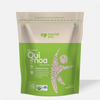
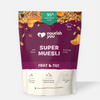

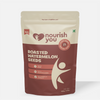
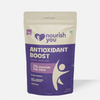
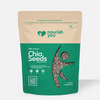
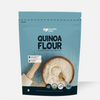

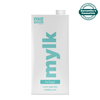
Leave a comment